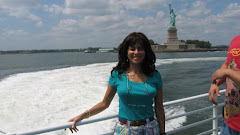
Excerpted from an article posted by the AP on 02-18-11
Witnesses say Bahrain security forces have opened fire on anti-government protesters as the violence in Manama continues as part of a bold attempt to copy Egypt's uprising and to force high-level changes in its government.
Protesters are calling for the removal of King Hamad bin Isa al-Khalifah and for Prime Minister Khalifah bin Sulman al-Khalifah to step down, and the majority Shiites are demanding more power from Sunni-led government.
The violence has now thrust the small island country - known for its oil and pearls - into the international spotlight for reasons other than its tourism and relatively liberal climate. Though Bahrain is tiny, it is home to the U.S. Navy's Fifth Fleet and, like Saudi Arabia, is one of the key U.S. allies in the Gulf region.
Here are a few facts about Bahrain:
Government
The nation has a constitutional hereditary monarchy, which means the king, as chief of state, is guided by a constitution -- but his rights, duties and responsibilities are spelled out in written law or by custom. Bahrain has had only one Prime Minister since the country's 1971 independence, Khalifah bin Sulman al-Khalifah, the uncle of the reigning King Hamad bin Isa al-Khalifah (see photo). Protesters are calling for the removal of King Hamad and for the prime minister to step down, and the majority Shiites are demanding more power from Sunni-led government.
The country has been headed since 1783 by the Khalifah family, members of the Bani Utbah tribe, who expelled the Persians. From 1861, when a treaty was signed with Britain, until independence in 1971, Bahrain was virtually a British protectorate.
Media
The BBC reports that most Bahraini radio and TV stations are state-run. A press law guarantees the right of journalists to operate independently, but they are liable to jail terms for offenses which include insulting the king, and self-censorship is practiced. Earlier this month, Bahrain's leaders promised to expand media freedom in another apparent attempt to quell plans for the first major anti-government protests in the Gulf since the uprising in Egypt.
Women
According to Bahrain Centre for Human Rights (BCHR), women in Bahrain are still widely discriminated against and enjoyed few freedoms in general society. The BCHR has called Bahrain's society and workplace "male-dominated," and noted that "very few genuine steps are being taken -- by either the government or civil society -- to rectify the one-sided system." The group has also highlighted the plight of female migrant workers in the Gulf state, saying that "special attention must be given to the plight of female migrant domestic workers, as they have been by and large ignored and excluded from the discourse on women's rights."
People
According to the CIA World Factbook, the population of Bahrain is a mere 738,004, 62.4 percent of which are native Bahraini.
Economy
According to the CIA World Factbook, Bahrain has one of the most diversified economies in the Persian Gulf. Highly developed communication and transport facilities make Bahrain home to numerous multinational firms with business in the Gulf. As part of its diversification plans, Bahrain implemented a Free Trade Agreement with the U.S. in August 2006, the first such agreement between the U.S. and a Gulf state. Bahrain's economy continues to depend heavily on oil, though considerably less so than other Gulf states.
Religion
81.2 percent of Bahrain identifies as Shia and Sunni Muslim, according to the CIA World Factbook.
Education
Bahrain has the oldest public education system in the Arabian Peninsula. The system was established in 1932 when the government assumed responsibility for operating two preexisting primary schools for boys. Subsequently, separate facilities for girls and various secondary programs were established. Since the 1970s, education has been one of the largest current government expenditures.
US Naval Fleet
A close ally of the United States, Bahrain is home to the U.S. Navy's Fifth Fleet, which is responsible for naval forces in the Persian Gulf, Red Sea, Arabian Sea, as well as the coast off East Africa, as far south as Kenya.






.jpg)
.jpg)




No comments:
Post a Comment